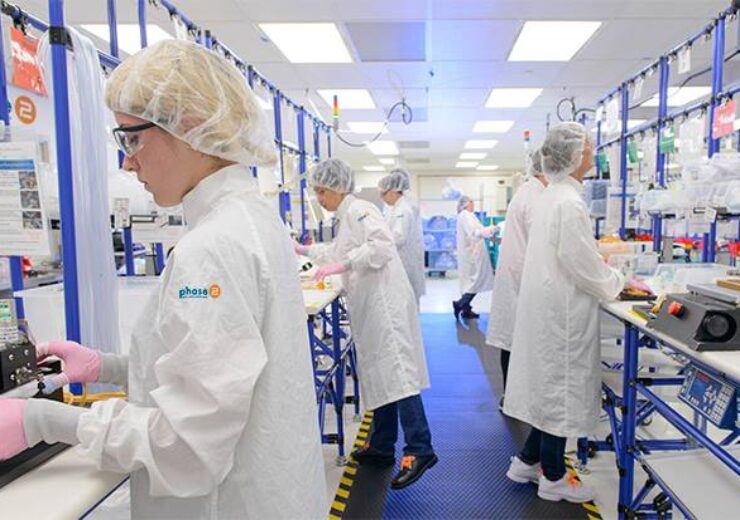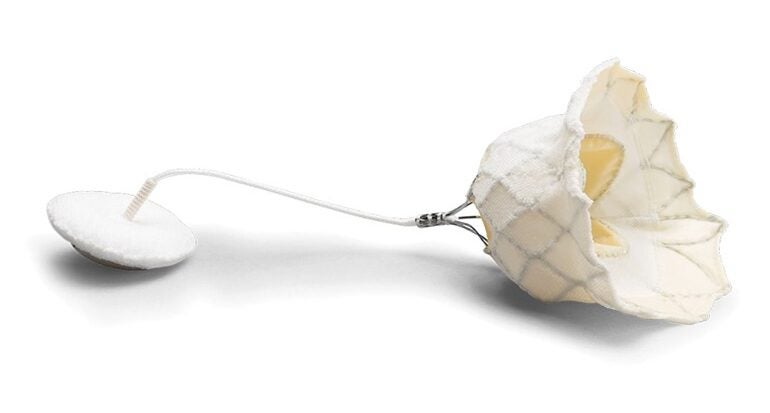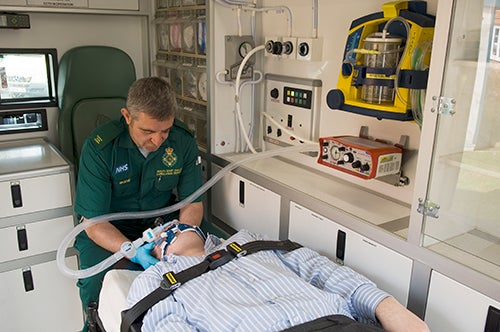There are 'promising signs' in Abbott Laboratories' recent Q2 earnings report - despite a 21.2% decrease in medical device sales compared to 2019

Devices used in elective, non-urgent procedures are thought to be some of the worst affected in the medical industry (Credit: Phase 2 Medical Manufacturing)
Abbott Laboratories’ second-quarter earnings may provide “hope” for medical device markets recovering from Covid-19, says an analyst.
The US healthcare giant released its Q2 results earlier this month, reporting that its global medical device sales had decreased by 21.2% compared to the second quarter of 2019.
Despite this, the company also stated procedures using its devices had “improved significantly” and begun to return to normal, pre-pandemic levels during the second quarter of this year — a trend that analytics firm GlobalData attributes to the decreasing number of Covid-19 cases in many countries.
Experts from GlobalData are now anticipating the majority of medical device markets will have recovered from the crisis by 2021, although this estimation may be subject to change as more information becomes available.
Ashley Young, medical device analyst at GlobalData, said: “As healthcare facilities and providers learn to live with the ‘new normal’, procedures that were put on hold at the beginning of the pandemic are now being carried out, allowing medical device markets to begin to return to normalcy.
“Abbott Laboratories’ results provide hope that medical device markets may not decline as sharply in 2020 as was expected at the height of the pandemic.
“If procedure numbers continue on their upward trajectory, financial impacts may be minimised across multiple medical device markets.”
Abbott Laboratories in the TMVR market
Chicago-based company Abbott Laboratories is a global leader in the transcatheter mitral valve repair (TMVR) market with its MitraClip device.
In its earnings report on 16 July, the firm revealed that TMVR procedures — which involve repairing or replacing the heart’s mitral valve through a minimally invasive operation — had returned to 85% of their pre-coronavirus levels by the end of Q2.
GlobalData estimates that, having been worth about $700m in 2019, the TMVR market is likely to decline in value this year due to Covid-19-related delays and cancellations of these types of surgeries.
The cardiovascular sector, in general, was expected to be among those taking the biggest hit due to the crisis, with GlobalData anticipating in June that revenues may not be recoverable for manufacturers of cardiovascular devices.

However, if TMVR procedure numbers continue to return to pre-Covid-19 levels — as suggested by Abbott Laboratories’ report — this decline may not be as severe as originally predicted in 2020.
Alison Casey, medical device analyst at GlobalData, said: “A strong recovery in response to Covid-19 is important across all medical device sectors.
“Although elective procedures may not be expected to recover as strongly as semi-urgent cardiovascular procedures like TMVR, this is still a promising sign.
“Also, markets that are heavily dependent on medical tourism [patients travelling abroad for procedures including dental, cosmetic and fertility treatments] will likely take longer to recover.”
The analytics firm also believes that if further spikes in Covid-19 cases occur in many countries towards the end of 2020, declines in procedures are likely to be observed again, leading to another downturn in device sales.
Other sectors impacted by the pandemic
Two other heavyweights in the healthcare sector, Johnson & Johnson (J&J) and Edwards LifeSciences, also recently released their Q2 2020 earnings.
While both reported a drop off in medical device sales, J&J said it expects this to be a short-term trend, and has forecasted a strong recovery for elective procedures in the second half of this year.
Edwards LifeSciences reported a 12% year-on-year decline in transcatheter aortic valve replacement (TAVR) sales — which, like TMVR, is part of the cardiovascular market — but also highlighted a notable improvement in TAVR procedure volumes in May and June.
As well as these early indications that cardiovascular procedures — especially semi-urgent ones — may not have been hit as hard by the pandemic as first thought, other markets, such as orthopaedic devices, may also be in a strong position to recover.
David Bicknell, principal analyst for thematic research at GlobalData, said: “GlobalData’s analysis indicates over 80% of orthopaedic procedures are elective — and the Covid-19 crisis has caused most elective and non-essential surgeries to be cancelled or postponed.

“However, GlobalData expects that the number of elective orthopaedic surgeries will gradually return to normal as the pandemic threat recedes. This sector is set to recover lost revenues through increased demand.”
On top of this, some sectors — particularly those specialising in devices central to treating the Covid-19 virus, such as the anaesthesia and respiratory market — have “flourished” over the past six months.
“The market for ventilators and related accessories has seen a surge in sales to meet the escalating demand,” said Bicknell.
“According to GlobalData analysis, before the Covid-19 pandemic, the global ventilators market was valued at $1.1bn in 2019, growing at an annual rate of 3.5%.
“GlobalData now expects the market to reach $5.2bn in 2020 — with a gradual slowing of sales growth in coming years due to the load purchasing occurring in 2020.
“If coronavirus cases surge as governments begin to loosen lockdown restrictions, demand for ventilators could continue to increase.”
Can medical device companies guard against the impact of Covid-19?
The pandemic has introduced many factors that are beyond the control of medical device manufacturers — and may yet continue to do so, with Covid-19 cases and deaths currently rising in many US states, and second waves of the virus in numerous countries looking probable later this year.
A firm’s ability to recover from the pandemic’s impact will also depend on a multitude of factors including the general health of the company, how quickly they can adapt to new circumstances, the markets or therapeutic areas they operate in, and the geographical regions involved, according to GlobalData’s Casey.
However, companies do still have options in terms of how they choose to handle the situation.
“Manufacturers could choose to invest or repurpose their resources towards markets that are benefitting from the disease — for example, certain diagnostic markets as well as devices commonly used to treat critical care patients,” said Casey.
“Additionally, if applicable, manufacturers could choose to target their sales teams towards regions known to be in more of a recovery phase, such as the north-east of the US, as opposed to the south.
“However, these are short-term strategies and there is ultimately a limit to what manufacturers can do to negate the financial impact of the pandemic.”
